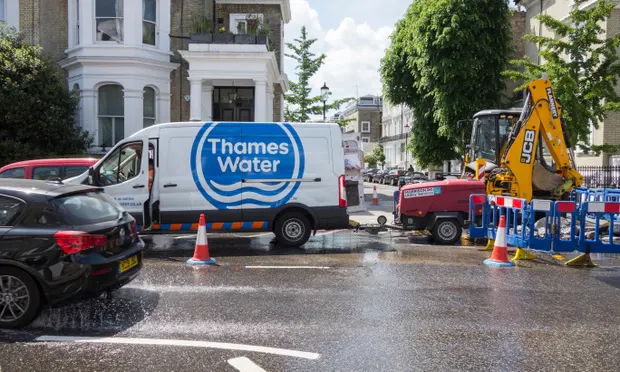Contingency plans for the collapse of Thames Water are reportedly being drawn up by the UK government and the water watchdog, amid fears that Britain’s biggest water company cannot survive because of its huge debt pile.
Ministers and Ofwat are holding discussions about the possibility of placing Thames Water into a special administration regime (SAR) that would take the company into temporary public ownership, according to Sky News.
The news comes as the chancellor prepares to meet the competition and utilities regulators later on Wednesday to address how they are cracking down on companies that are exploiting rampant inflation by raising prices.
Jeremy Hunt, the Competition and Markets Authority and the watchdogs for energy, water and communications are expected to discuss reports that water bills across England will rise by up to 40% next year to pay for the cost of tackling the sewage crisis. Citing public consultation documents, the Times said annual bills could increase from an average of about £450 to £680, plus inflation, in parts of the country.
The talks between the Department for Environment, Food and Rural Affairs, Ofwat and the Treasury, remain at a preliminary stage and the contingency plans may not be acted upon, Sky said.
It comes after the water company, which has 15 million customers in London and the Thames Valley, announced on Tuesday that its chief executive, Sarah Bentley, had quit, a month after giving up her annual bonuses over its environmental track record.
Thames Water is struggling with a £14bn debt burden, the leakage rate from the its pipes is at a five-year high and, like many of its rivals, it has been repeatedly fined over the discharge of raw sewage into rivers and missing targets on pollution and sewer flooding.
The children’s minister, Claire Coutinho, did not comment directly on the report, but told Sky News: “I certainly think there are water companies like Thames Water which are in difficult positions, but I think our position as government is to make sure that we have the right policies in place to see consumers protected but also that we’re dealing with things which are really important to the country, like dealing with the sewage leaks.



